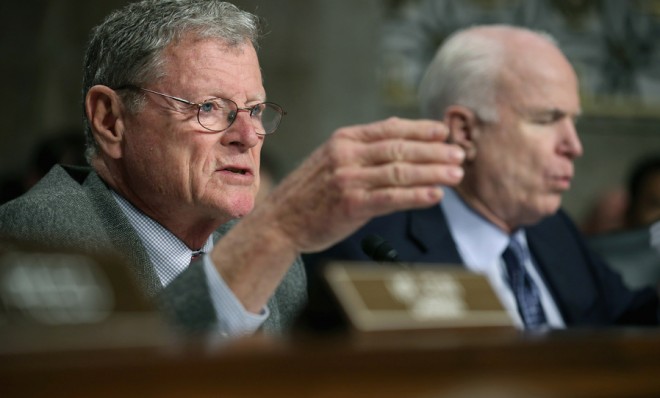No, the sequester won't stop a strike against Syria
Some hawks say we can't afford to launch missiles. They're wrong.


A free daily email with the biggest news stories of the day – and the best features from TheWeek.com
You are now subscribed
Your newsletter sign-up was successful
President Obama has plenty of hurdles to clear before following through on his threat to bomb Syria's military over its alleged use of chemical weapons. His request for authorization is facing stiff headwinds in Congress, while Russia's Vladimir Putin is trying to rally international opposition to Obama at the G-20 summit that convened Thursday in St. Petersburg.
Some American lawmakers, however, say that Obama's biggest obstacle is money.
A group of hawkish Republicans in Congress are arguing that the Pentagon simply doesn't have enough money for the military to take action against Syria, due to the $500 billion in long-term spending cuts to the department known as the sequester, $54 billion of which is scheduled to hit in 2014.
The Week
Escape your echo chamber. Get the facts behind the news, plus analysis from multiple perspectives.

Sign up for The Week's Free Newsletters
From our morning news briefing to a weekly Good News Newsletter, get the best of The Week delivered directly to your inbox.
From our morning news briefing to a weekly Good News Newsletter, get the best of The Week delivered directly to your inbox.
"We cannot keep asking the military to perform mission after mission with sequestration and military cuts hanging over their heads," said Rep. Howard "Buck" McKeon (Calif.), the Republican chairman of the House Armed Services Committee. Or, as Sen. James Inhofe (R-Okla.) put it, "Our military has no money left."
Not everyone buys that logic. In fact, as arguments against intervening in Syria go, this one is pretty weak tea. Number crunchers believe the Pentagon's $650 billion annual budget can easily cover the kind of limited strike Obama wants, says John Hudson at Foreign Policy, in large part because the money has already been spent.
For instance, the Tomahawk cruise missiles have already been paid for and of the five Navy destroyers on station, four were already scheduled to be on deployment. "The increased marginal cost is really just the cost of fuel to keep one extra destroyer on deployment," said Chris Harmer, an analyst at the Institute for the Study of War, who favors intervention in Syria. "From the Navy perspective, this will be as inexpensive an operation in the near term as is possible." [Foreign Policy]
But what happens if Congress fails to pass a new stopgap spending resolution when the current one expires in 25 days, forcing the government to shut down? Even that probably would not limit Obama's options in Syria. The cost of an operation has been estimated in the tens of millions, says Annie Lowrey at The New York Times, which is a mere "drop in a very big bucket."
Critical military activities would continue during any government shutdown, for one, meaning troops in the Mediterranean would remain active and on the job. Congress could also pass a stand-alone measure to continue financing the military, if necessary. [New York Times]
Chris Stirewalt at Fox News thinks the tab for an air war against Syrian forces could quickly run into the tens of billions of dollars, which is still not crippling for a government that spends more than half a trillion dollars on its military every year — "but not chump change either."
A free daily email with the biggest news stories of the day – and the best features from TheWeek.com
One thing is certain, though. As Congress heads into a tense showdown over Syria next week, the clash will worsen an environment that has already grown hostile due to another looming debt-ceiling crisis. In Washington, says Tom Cohen at CNN, "it always comes back to the budget."
Harold Maass is a contributing editor at The Week. He has been writing for The Week since the 2001 debut of the U.S. print edition and served as editor of TheWeek.com when it launched in 2008. Harold started his career as a newspaper reporter in South Florida and Haiti. He has previously worked for a variety of news outlets, including The Miami Herald, ABC News and Fox News, and for several years wrote a daily roundup of financial news for The Week and Yahoo Finance.
